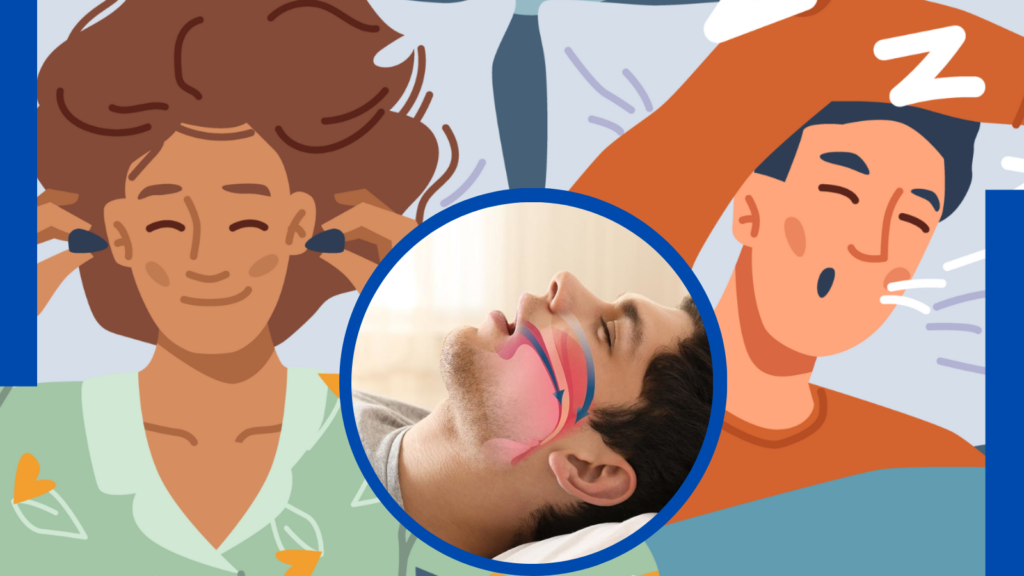Sleep apnea and pulmonary hypertension are two serious health conditions that, when linked, can significantly impact a person’s well-being. Sleep apnea disrupts your breathing during sleep, while pulmonary hypertension refers to high blood pressure in the arteries of your lungs. But can sleep apnea lead to pulmonary hypertension? Let’s delve deeper into the connection between these conditions, how they affect your health, and what you can do to manage them.
Understanding Sleep Apnea: What Happens When You Stop Breathing at Night?
Sleep apnea is a condition where your breathing repeatedly stops and starts during sleep. The two main types of sleep apnea are:
- Obstructive Sleep Apnea (OSA): The most common type, caused by a blockage in the airway, often due to relaxed throat muscles.
- Central Sleep Apnea (CSA): Occurs when your brain fails to send proper signals to the muscles controlling breathing.
Common Symptoms of Sleep Apnea
- Loud snoring
- Gasping for air during sleep
- Morning headaches
- Daytime fatigue and drowsiness
- Difficulty concentrating
Left untreated, sleep apnea can lead to several complications, including high blood pressure, heart disease, and stroke.
What Is Pulmonary Hypertension?
Pulmonary hypertension is high blood pressure in the arteries that carry blood from your heart to your lungs. Unlike regular hypertension, this condition specifically affects the lungs and the right side of the heart.
Symptoms of Pulmonary Hypertension.
- Shortness of breath
- Fatigue
- Chest pain
- Dizziness or fainting spells
- Swelling in the ankles or legs
Pulmonary hypertension can make it harder for your heart to pump blood effectively, leading to serious complications if left untreated.
The Link Between Sleep Apnea and Pulmonary Hypertension
How Sleep Apnea Contributes to Pulmonary Hypertension
When you experience sleep apnea, the repeated pauses in breathing reduce oxygen levels in your blood. This lack of oxygen causes the blood vessels in your lungs to constrict, increasing the pressure in the pulmonary arteries. Over time, this can strain the right side of your heart, leading to pulmonary hypertension.
Key Risk Factors
- Obesity: A common risk factor for both sleep apnea and pulmonary hypertension.
- Chronic Hypoxia: Long-term low oxygen levels exacerbate pulmonary hypertension.
- Coexisting Conditions: Heart disease or chronic obstructive pulmonary disease (COPD) can increase the risk.
How to Recognize the Signs Early
Early detection is crucial to prevent serious complications. Look out for these warning signs:
- Persistent snoring accompanied by pauses in breathing
- Frequent awakenings at night due to shortness of breath
- Worsening fatigue despite adequate sleep
- Swelling in the lower extremities
If you notice any of these symptoms, consult an expert immediately.
Expert Diagnosis and Treatment at Dr. Rahul’s Clinic
At Dr. Rahul’s Clinic, we specialize in diagnosing and managing sleep apnea and pulmonary hypertension. Led by Dr. Rahul K. Jaiswal, our team offers state-of-the-art care tailored to your needs. Here’s how we can help:
1. Comprehensive Evaluation
Dr. Jaiswal begins with a thorough consultation, reviewing your medical history and symptoms. Diagnostic tools like polysomnography (sleep study) and echocardiography are used to pinpoint the condition.
2. Tailored Treatment Plans
We create personalized treatment plans that address the root cause of your condition. These may include:
- Continuous Positive Airway Pressure (CPAP): A device that keeps your airways open during sleep.
- Lifestyle Modifications: Weight management, smoking cessation, and dietary changes.
- Medications: To manage pulmonary hypertension and improve heart function.
- Surgical Options: In severe cases, procedures like tracheostomy or nasal surgeries may be recommended.
3. Regular Monitoring and Follow-Ups
Ongoing care ensures that your treatment is effective. We monitor your progress through regular check-ups and adjust your plan as needed.
Tips to Manage Sleep Apnea and Reduce Pulmonary Hypertension Risk
While expert care is essential, you can take steps to manage these conditions at home:
1. Improve Sleep Habits
- Sleep on your side to prevent airway obstruction.
- Maintain a consistent sleep schedule.
- Avoid alcohol and sedatives before bedtime.
2. Focus on Weight Management
- Adopt a balanced diet rich in fruits, vegetables, and lean proteins.
- Incorporate regular physical activity into your routine.
3. Monitor Your Heart Health
- Keep your blood pressure in check.
- Avoid smoking and secondhand smoke.
- Stay active to improve cardiovascular health.
4. Use CPAP Therapy Consistently
If prescribed, use your CPAP device regularly to ensure uninterrupted breathing during sleep.
Debunking Common Myths About Sleep Apnea and Pulmonary Hypertension
Myth 1: Sleep Apnea Only Affects Overweight People
Fact: While obesity is a significant risk factor, sleep apnea can occur in people of all body types, including children.
Myth 2: Snoring Is Harmless
Fact: Loud snoring, especially with pauses in breathing, can be a sign of sleep apnea, which requires medical attention.
Myth 3: Pulmonary Hypertension Is Just High Blood Pressure
Fact: Pulmonary hypertension is a distinct condition that specifically affects the arteries in your lungs and can have serious consequences if untreated.
Myth 4: CPAP Therapy Is Uncomfortable
Fact: Modern CPAP devices are designed for comfort and effectiveness, and many patients adjust to them quickly.
FAQs About Sleep Apnea and Pulmonary Hypertension
1. Can sleep apnea be cured?
How is pulmonary hypertension diagnosed?
Is pulmonary hypertension life-threatening?
How can I book an appointment with Dr. Rahul K. Jaiswal?
Final Thoughts: Prioritize Your Sleep and Heart Health
Sleep apnea and pulmonary hypertension are serious conditions, but they can be effectively managed with the right care and lifestyle changes. At Dr. Rahul’s Clinic, we are committed to helping you achieve better health through expert diagnosis and personalized treatment. Don’t wait until symptoms worsen—take control of your health today.

